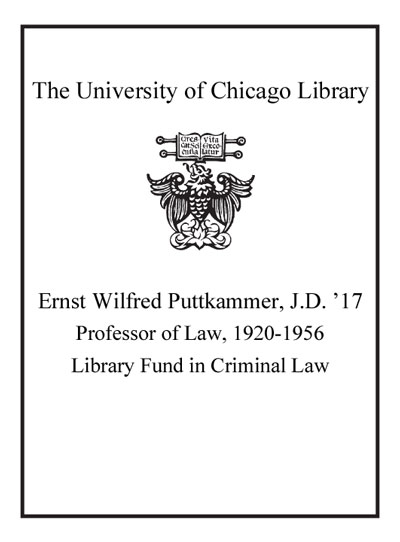Review by Choice Review
Frase (Univ. of Minnesota) proposes a new model of criminal sentencing that seeks to limit the severity of punishment, promote the communicative aspects of sentencing, curtail excessive discretion by prosecutors, and lessen the impact of punishment on minority communities. Based in part on the prior writings of criminologist Norval Morris, who was influential in the 1970s-80s, on existing sentencing policies in Minnesota and other progressive states, and on the recommendations of the Model Penal Code Sentencing Project, this ambitious and complex model proposes a uniform approach to sentencing that would ameliorate the problems endemic to the current penal system. Frase's attempt to remedy difficulties like prison overpopulation and minority overrepresentation is admirable, but lawmakers who would be responsible for implementing these changes are likely to find his suggestions to be ideologically unacceptable and inherently impractical. In the concluding chapters, Frase acknowledges as much, yet believes that his model offers a more sustainable approach to criminal sentencing. Unfortunately, his prose is too technical to be intelligible for the average legislator, but his review of past theories and overview of existing models should prove useful to academics. Summing Up: Recommended. Graduate, research, and professional collections. J. E. Walsh Azusa Pacific University
Copyright American Library Association, used with permission.
Review by Choice Review

